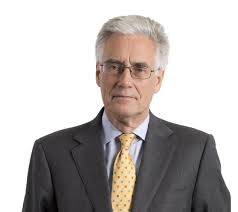
How do we draw back from the brink of planetary boundaries? For Lord Adair Turner, the debate overlooks when and how we must act most urgently. In the long term, we can produce and consume almost unlimited green electricity. Yet global food systems are already exceeding our boundaries, and need radical change now.
“Humanity is the cuckoo in the planetary nest, argues Martin Wolf in the Financial Times. Our success in increasing our wealth and numbers has come at a heavy impact on the Earth’s biosphere – above all in catastrophic biodiversity loss. And even that increase in wealth remains uneven and inequitable.
Where might we find an answer? Wolf turns to the economist Lord Adair Turner, chair of the Energy Transitions Commission, and his recent lecture on “Techno-optimism, behaviour change and planetary boundaries”.
In his lecture, Lord Turner contrasts two prevailing mindsets. The ‘techno-optimists’ believe that humankind’s advances can deliver net zero, while continuing to raise living standards around the world: “We can continue to drive our cars, fly off on holiday, and eat big steaks… as long as the cars are electric, the planes use biofuels, and the steaks are made from synthetic meat.” The opposing, ‘End-of-Consumerism’, view is that living standards in rich countries are inherently unsustainable; they lock in demands for energy and materials that will inevitably take us beyond planetary boundaries.
Like any binary opposition, this over-simplifies. Instead, Lord Turner argues, the crucial distinctions are between the long and short term, between different areas of the economy, and different forms of planetary boundaries.
“In the long term, not only is green electricity going to be cheap – it is also essentially limitless”
His conclusions are striking. In the long term, there are ‘almost no relevant planetary boundaries – with no limit to how much green electricity we can sustainably produce and consume’. But there are severe and immediate pressures from other sectors, particularly food and textile production, which require dramatic behavioural change.
Within just 30 or 40 years, we can achieve a world where zero carbon energy is “so cheap and limitless that improving end-use energy efficiency may become largely irrelevant”. Nor do the mineral and material inputs needed for a green electric system push us beyond our planetary limits. They are plentiful, and “their adverse environmental impact is an order of magnitude, or two or three orders of magnitude, smaller than our old fossil-fuel-based system.”
However, we have left it dangerously late to transition out of fossil-fuel dependency. And in our use of land and oceans for food, textiles and other organic materials, we are already exceeding planetary boundaries – with no clear vision of how to draw back from them.
“But changing lifestyle and consumer behaviour may be essential to achieve emission reductions over the next 10 years”
We are used to being told that the time to act is now. Lord Turner’s analysis adds the twist that it is not forever. To get emissions down fast over the next 10 years, we must “persuade as many people as possible to make responsible consumption choices today – even if those choices will be unimportant in 50 years’ time”.
“If we make the climate change story always about constraints, impending disaster and the need to consume less, we will probably lose a lot of people.” So, as well as building a zero-carbon electricity system, we must do better at communicating the future of abundant green energy that it will provide.
Yet none of this should diminish the urgency of driving radical technologies of food production. We must move food towards a place where, as for energy, there will be no relevant, long-term boundaries.
And, crucially, we must “motivate as rapidly as possible – from governments, from companies and from individuals – the big flows of finance which can support eco-system restoration, reforestation, and better, less destructive land-use practices”, so we can start to repair the natural world.
Lord Turner’s full lecture is available here.
Lord Adair Turner is the chair of the Energy Transitions Commission.

